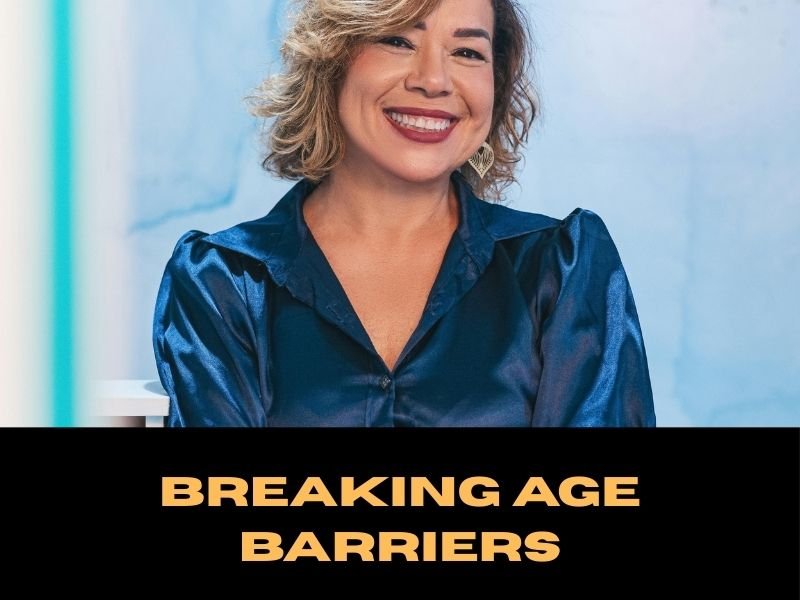When you begin to overthink in a relationship, it can feel like there is always a storm in your head. In this article, we will help you understand how to stop overthinking in a relationship. You analyze every word, text, and gesture until you are exhausted. It is normal to wonder what your partner is thinking or feeling from time to time, but constantly overthinking things causes stress, hurts trust, and makes even the strongest bond feel weak. The good news is you can learn how to calm your mind and fill it with clarity, safety, and connection.
This guide will show you the main reasons why people overthink, the signs that they are doing so, and the best ways to stop overthinking, both on your own and as a couple. If you’re feeling insecure because of past relationships, having trouble communicating with your current partner, or just have a habit of going over things in your head, you’ll find useful advice here on how to restore peace and protect your love.
What Does Overthinking in a Relationship Mean?
In a relationship, overthinking occurs when your mind won’t stop working after a conversation, interaction, or minor behavioral shift from your partner. You end up analyzing “what ifs,” making predictions, or deciphering potentially false hidden meanings rather than accepting moments as they are. This continuous mental activity has an impact on your emotions, mood, and communication style in addition to your thoughts.
For instance, you might assume that your partner is losing interest if they respond to a text message later than usual. Did I make a mistake? Instead of asking for clarification, you might spend hours thinking about it and conjuring up scenarios that agitate and worry you. Here is where overanalyzing can be harmful because it can transform minor doubts into emotional obstacles, frequently without any solid proof.
The Hidden Triggers: Why You Keep Overthinking Your Partner’s Words and Actions
Overthinking rarely happens suddenly; instead, it’s frequently caused by deeper emotional triggers that have been subtly influencing your responses for years. Sometimes it stems from relationship traumas in the past, where being betrayed or neglected taught you to be on guard all the time. In other cases, it is linked to anxiety or low self-esteem, which makes it difficult to accept that love can be guaranteed without constant evidence. Even minor everyday stressors, such as financial concerns or work deadlines, can heighten your awareness of possible “signs” of relationship problems.
Consider the story of Anna. She found herself overanalyzing everything her new boyfriend, Mark, said after being cheated on in her previous relationship. She would mentally relive the conversation if he appeared more reserved one evening, analyzing his tone and looking for hints that he might be concealing something. Mark was simply worn out from his job. However, Anna saw shadows where there was light because her brain was hardwired to anticipate pain from her past experiences. The first step to regaining emotional equilibrium and recognizing your partner’s behavior for what it is is to recognize these hidden triggers.
How Overthinking Slowly Damages Love, Trust, and Communication
Overanalyzing gradually takes away at the foundation of your relationship, not just in your head. Asking your partner to clarify something they said, checking their plans, or needing reassurance when they’re busy may all seem harmless at first. However, over time, these minor behaviors may develop into a pattern of skepticism that undermines confidence. The other person may begin to feel misinterpreted, micromanaged, or emotionally spent when one person is continuously looking for approval.
Think about Mia and James. Although James adored Mia, he frequently mistook her brief text responses for irritation. As a result, he started sending follow-up messages like “Did I say something wrong?” and “Are you upset?” Mia eventually got the impression that James would always suspect something was amiss, regardless of what she said. Conversations felt heavy, the natural rhythm of the relationship became strained, and sincere connection was replaced with cautious wording. A feedback loop is produced by overthinking: fear breeds doubt, which breeds more overthinking, and communication shifts to defending emotions rather than expressing them.
Common Signs You Are Caught in the Overthinking Trap
When you overthink in a relationship, it often shows up in the same, easy-to-see ways. Some signs that you might be having problems in your relationship are thinking about past conversations over and over again, needing your partner to reassure you, assuming your partner has bad intentions without any proof, and feeling anxious about the relationship’s stability all the time. These habits can make you feel drained, make it hard to communicate naturally, and stop the relationship from growing on its own.
For example, look at the results of a case study on relationship counseling. One participant said she spent almost an hour every night going over her partner’s interactions from the day in her head, looking at their facial expressions, tone of voice, and even pauses in speech. This way of thinking not only made her more stressed, but it also made it harder for her to enjoy time with others. These patterns show very clearly how overthinking can hurt both your health and your relationships. People can take steps to fix these behaviors before they become deeply ingrained if they notice these signs early.
Master the Pause: How to Catch Yourself Before the Spiral Starts
One small thought can quickly spiral into a dozen “what ifs” before you even realize it’s happening. Overthinking frequently starts like a runaway train. The secret is to apply the brakes early. Here’s where “mastering the pause” is useful. Take a literal pause when you feel your mind beginning to race. Take a short walk, put your phone away, or simply close your eyes and take three deep breaths. Although it may seem straightforward, that brief pause allows your brain to rest before it begins creating stories out of thin air.
Consider it similar to stopping yourself in the middle of a sneeze: you sense it coming and take quick action to prevent it. For instance, rather than allowing your thoughts to drift into “They’re upset” or “They’re losing interest,” pause when your partner responds to a lengthy message with a brief “ok.” Remember: That brief text could have been sent for a hundred reasons, the majority of which are unrelated to me. Early thought chain disruption teaches your brain that not every situation requires in-depth analysis, which is a huge win for your mental health.
Reframe Your Thoughts: Turning Insecurities into Empowering Beliefs
Changing the way you think means replacing interpretations based on fear with ones based on trust and understanding. When we think the worst about what our partner wants, we tend to overthink things. But just changing the way we look at things can help calm those fears. You could say, “They’re busy, and that’s fine,” instead of “They’re ignoring me.” This mental habit helps you stop thinking there’s trouble when there isn’t any after a while.
Sophie used to get worried when her boyfriend didn’t answer right away. She thought that silence meant something was wrong. She learned to tell herself a more balanced story after practicing reframing. She thought he was probably busy with work or hanging out with friends. That change not only made her less anxious, but it also made it easier for them to talk to each other and let her enjoy the relationship without always worrying about it.
Focus on the Now: Simple Mindfulness Practices for Couples
Mindfulness is a method that has been shown to work and helps people stay in the present instead of getting caught up in what-ifs. Mindfulness can help you stop overthinking in relationships by focusing on what you and your partner have in common instead of what you think will happen. Focused breathing, guided meditation, and sensory awareness exercises are some of the ways that partners can be more intentional and emotionally clear when they are with each other.
For instance, a structured mindfulness exercise could have both partners spend ten minutes every night sitting together without any distractions, just focusing on their breathing and the sound of each other’s voices while they talk. Studies show that doing things like this regularly can help you control your emotions, build empathy, and feel more connected to others. Couples can break the mental habit of worrying about the past or the future by being aware of the present moment. This can help them build a stronger and more peaceful relationship.
Limit the Mental Replay: How to Set Boundaries for Your Thoughts
Mental replay, or going over the same conversation or situation in your head over and over, might seem like it’s helping you understand things better, but it usually makes things worse. Every time you play it back, it makes small details bigger, feeds your assumptions, and pulls you further away from reality. If you don’t do anything about it, it takes away your energy and keeps you stuck in the past instead of enjoying the present with your partner.
After small fights with his girlfriend Lily, Ethan had a hard time with this. He would go over every word, tone, and pause until the problem seemed much bigger than it was. Lily had already moved on by the time he finally brought it up, which made him feel tired and out of sync. Ethan made a simple rule to stop the cycle: if he replayed a moment twice, he would do something else, like go for a walk, listen to music, or call a friend. That little habit broke the mental loop and helped him stay in the present.
Create a Safe Space for Honest and Judgment-Free Communication
You need a place where your thoughts don’t feel like they’re being judged if you want to stop overthinking. That’s when a safe space in your relationship is useful. It is important that you and your partner can talk about what’s on your mind without worrying about being judged, ignored, or made fun of. When you know you can be honest without it turning into a fight, you’re less likely to keep things to yourself and think about them all the time.
You could just say, “Hey, can we talk without judging each other tonight?” and make it a habit. It could be at dinner, on a walk, or just before bed. The most important thing is to listen as much as you talk and not go into defense mode right away. You will be surprised at how much better you feel when you can talk about what’s bothering you instead of keeping it all in your head all day.
Practice Active Listening to Reduce Misinterpretations
Active listening is a structured way to communicate, which means paying close attention to what your partner says, how they say it, and how they move their body without thinking about how you will respond while they are speaking. This practice cuts down on a lot of the misunderstandings that lead to overthinking. Couples can have more accurate and understanding conversations if they focus on what the other person is trying to say instead of putting their own biases or past experiences into the conversation.
One good way to practice active listening is to repeat what your partner has said before you answer. This makes sure that both people understand the conversation and that any misunderstandings can be fixed right away. Couples who practiced active listening in a 2022 study on communication in relationships said that their conflicts happened less often and were less intense. Not only does doing this build trust between people, but it also reduces the amount of mental space where overthinking usually happens.
Build a Consistent Trust Routine with Your Partner
It takes a thousand little things to build trust, not just one big thing. A “trust routine” means making habits that show your partner they can count on you and you can count on them. This could mean checking in regularly, keeping your word, even on small things, or showing up when you say you will. These small actions build up over time to make a foundation that is so strong that overthinking has fewer places to hide.
Daniel and Clara are perfect examples. They had a rough patch where they weren’t sure about each other, but they agreed to talk on the phone every night before bed, no matter how busy they were. It wasn’t about controlling each other’s time; it was about staying in touch and putting each other first. At first, it felt a little forced, but after a few weeks, it became second nature. Daniel did not worry about whether or not Clara would answer right away during the day anymore, and Clara felt better knowing they had their evening routine. That simple routine became their safety net, making it easier for them to trust each other and stop overthinking things.
Conclusion
Overthinking can slowly damage even the strongest relationships by making small things stressful and making you doubt yourself. But as you can see, it’s not an unbreakable habit; you can change it. You can make room for clarity and emotional peace to grow by knowing what sets you off, stopping yourself before the spiral starts, and working to build trust with your partner.
Good relationships depend on being able to talk to each other, respecting each other, and knowing that you are both on the same team. When you choose to reframe a thought, stay in the moment, or share without judging, you move away from fear and closer to trust. And in the end, trust—not endless analysis—is what makes love strong, steady, and worth keeping.







